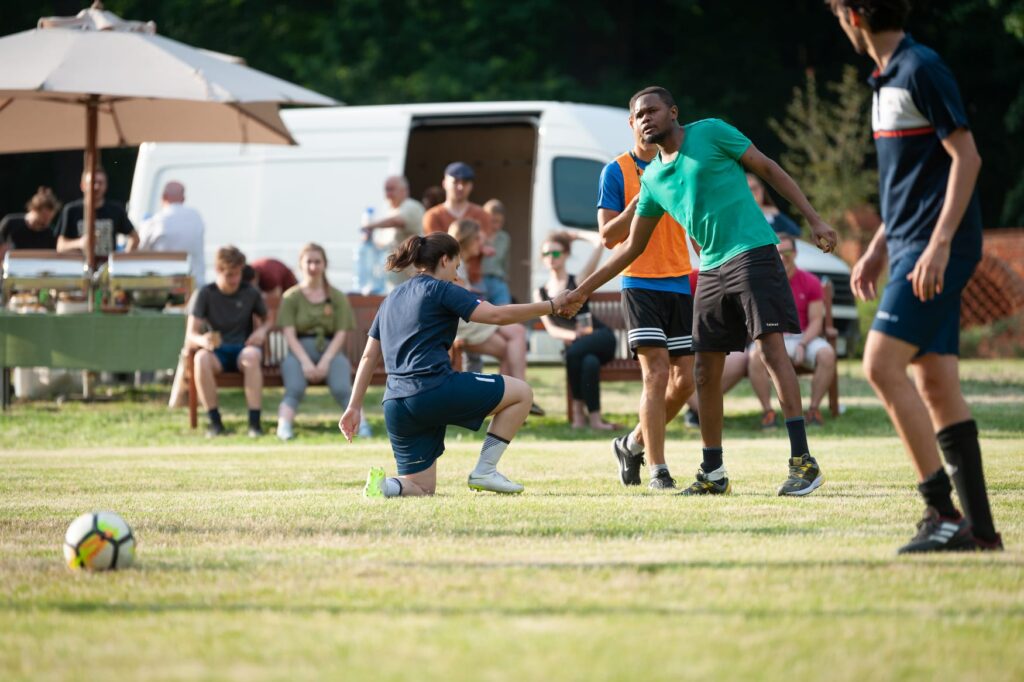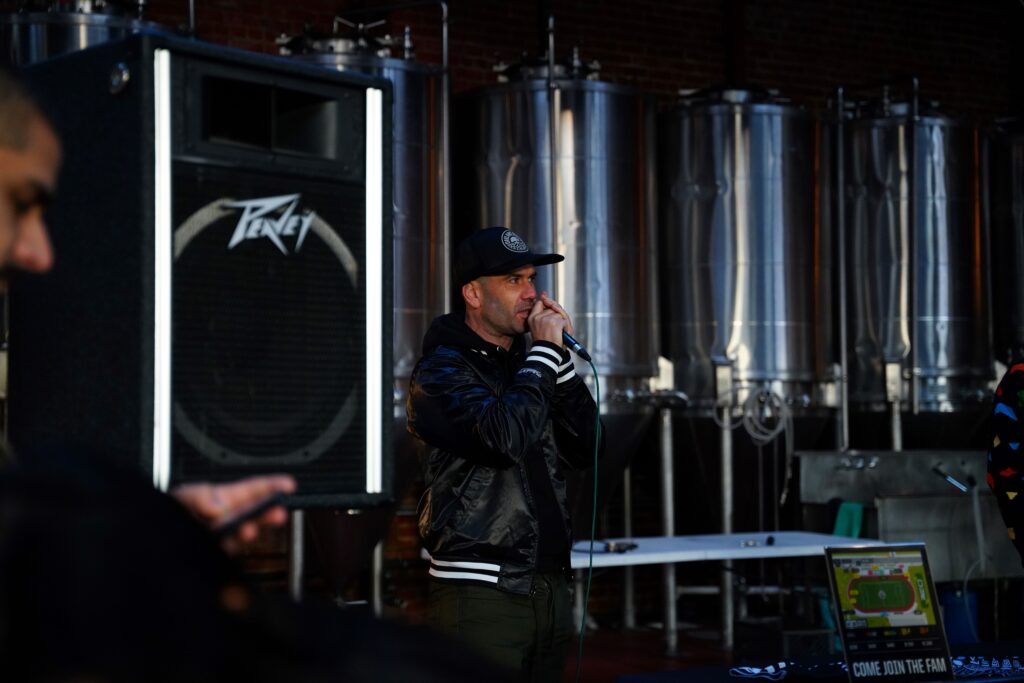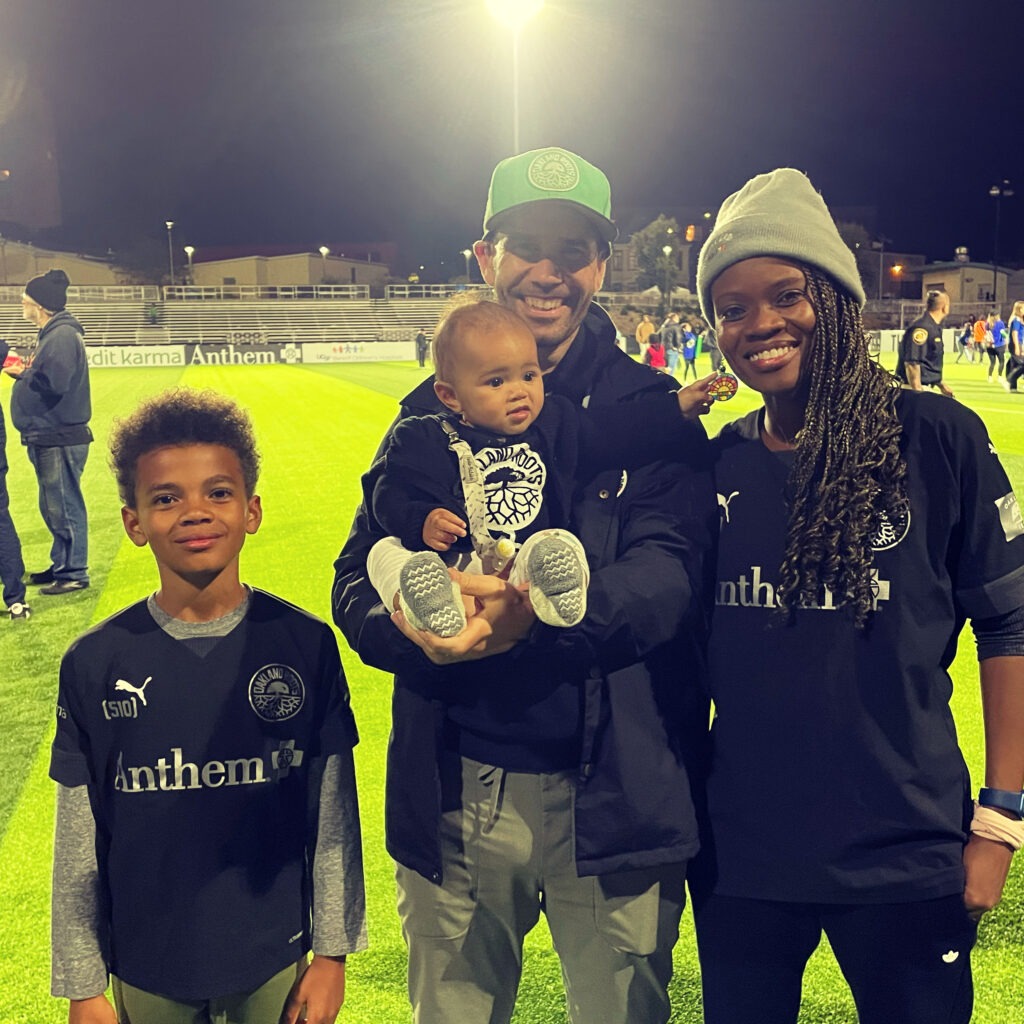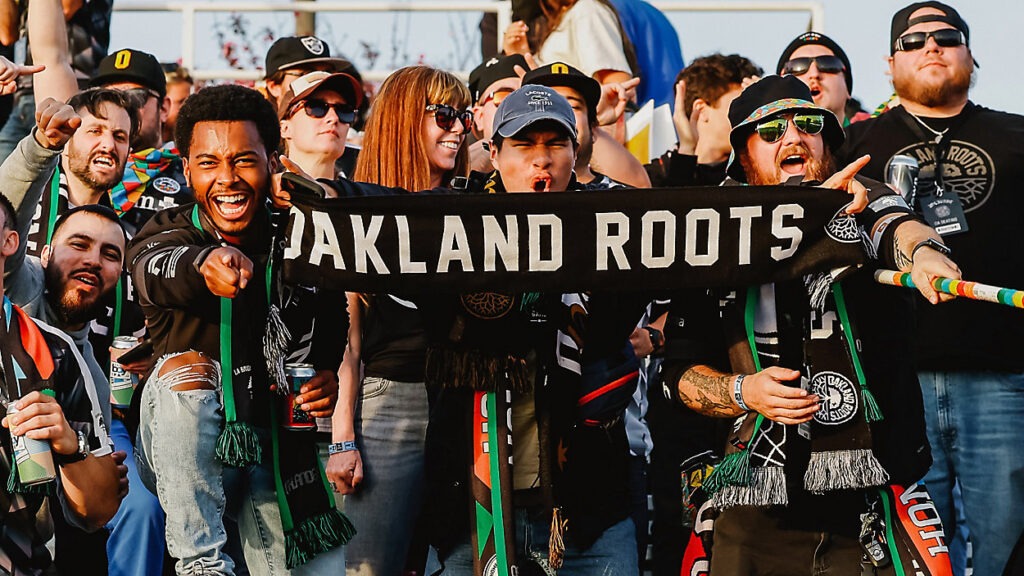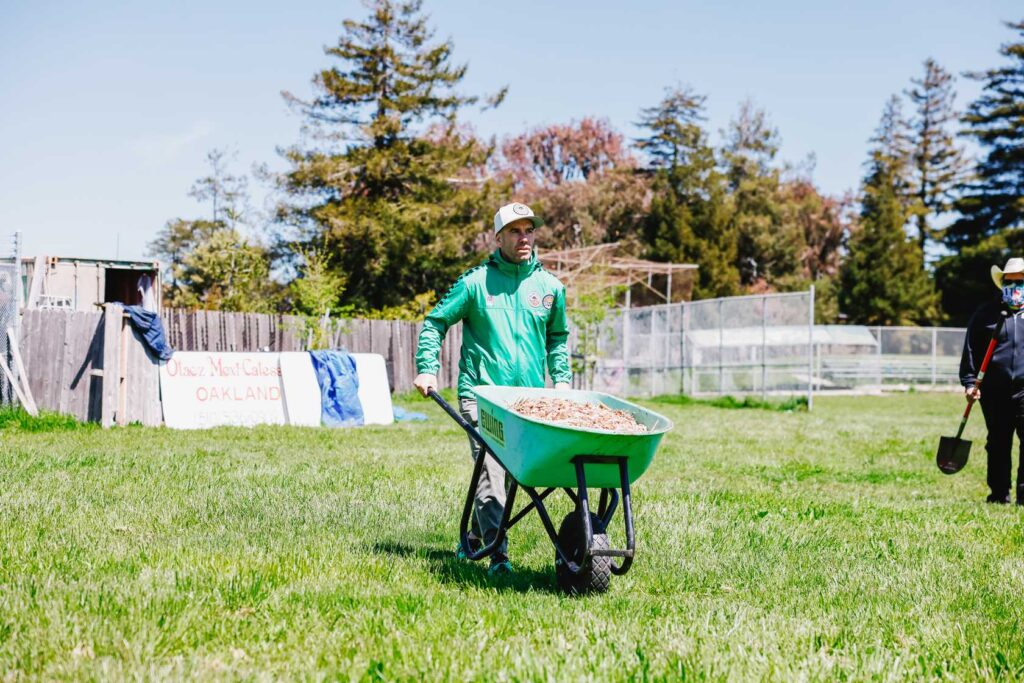No matter the audience, one question frequently arises when discussing sport for social good: “Yes, but how can sport solve that issue?” This question has trailed me throughout my career—from discussions about sport’s role in achieving the Millennium Development Goals (MDGs), to its integration into the Sustainable Development Goals (SDGs), and even casual conversations with those outside the field.
For many thematic areas, the answers come easily: social inclusion, gender equality, health and well-being—these are familiar territories. But when it comes to poverty alleviation, the skepticism lingers: “How can involvement in football affect poverty in a country or community?”
Football is often praised as a vehicle for positive change, particularly in the Global South, where its reach extends to some of the most marginalized communities. The idea that football can alleviate poverty is not new—it’s a message championed by NGOs, grassroots organizations, and major football institutions. Yet, for all the inspirational rhetoric, one critical question remains unanswered: how does football actually alleviate poverty?
A Tool, Not a Magic Wand
Current UN estimates have the amount of people globally living in poverty at around 1,1 billion. Half of these children and all living in very difficult circumstances. In such a pivotal moment in the world and with so many facing hardship, i often get a bit uneasy in my field when I hear some of the big slogans about the power of sport. First, let’s clear the air: football, or any sport, cannot single-handedly alleviate poverty (or accomplish big social economic challenges of any kind on its own). In the sport-for-good field, we often (perhaps too often) turn to the inspiring words of the great Nelson Mandela, who famously said, “Sport has the power to change the world.” However, this powerful statement is sometimes misinterpreted to mean that sport alone can solve complex societal challenges. It cannot.
Football for example is a tool—and its an excellent one—that can mobilize, inspire, and create the conditions for meaningful change. But it is not a standalone solution or a magic wand. Mandela himself framed this sentiment on a micro level, continuing in the same quote: “It has the power to inspire. It has the power to unite people in a way little else does. It speaks to youth in a language they understand.”
This distinction is essential when discussing the role of football—or any sport—as a force for good. Football, as the world’s most popular sport, is uniquely positioned to serve as a catalyst for development. It offers communities a valuable platform to take meaningful steps toward alleviating poverty and improving lives. Let’s explore how this works in practice.
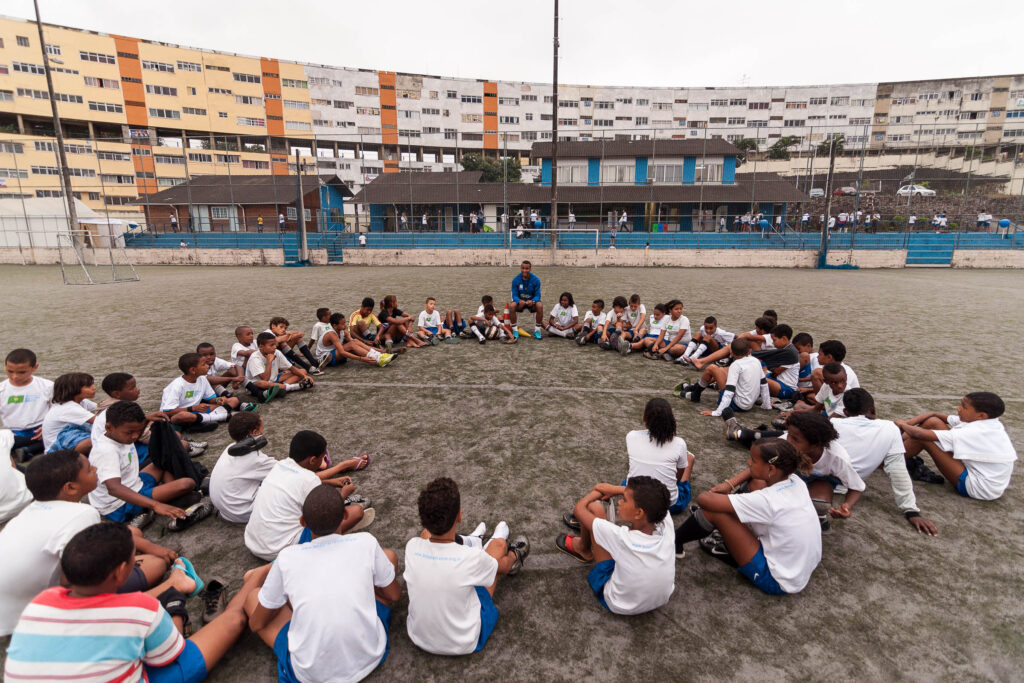
© Antoine Tardy / Photographers for Hope
How Football Can Alleviate Poverty: Pathways to Impact
In many parts of the world, football is more than just a sport; it is a cultural lifeline. Whether it’s in football crazy Argentina, in remote parts of Kenyan, the slums of India or in migrant landing spots in Europe, football captures the imagination and offers a glimmer of hope in contexts often overshadowed by hardship.
Here are the most effective mechanisms through which football can alleviate poverty:
1. Education and Skill Development
Grassroots football programs often provide more than athletic training—they offer educational opportunities. Football is a great mobilizer when it comes to gathering youth who come for the love of the game but who also can receive valuable life skills training which can lead to better employment opportunities.
Organizations like Grassroot Soccer in Sub-Saharan Africa integrate health and life-skills education into their programs, empowering youth with tools for both personal and professional growth. Vocational training is another avenue, teaching participants skills like event management, groundskeeping, or sports equipment repair—pathways that lead to broader employment opportunities.
Elite academies are also recognizing their potential for social impact. For example, Football Academies for Social Impact (FASI) in Mozambique embeds social entrepreneurship into its mission, prioritizing local hiring for every role—from coaches to catering staff—thereby building an ecosystem of sustainable economic activity.
2. Employment and Economic Stimulation
Football generates jobs directly and indirectly. Local tournaments employ coaches, referees, and organizers, while related industries such as sports manufacturing and hospitality flourish.
One standout example is Alive and Kicking, an NGO that produces high-quality footballs in Kenya and Zambia, creating jobs for local artisans and supplying durable products worldwide. Similarly, The UN (UNCTAD) is currently exploring how Africa can localize its participation in the billion-dollar sports economy by fostering homegrown entrepreneurs in kit-making, stadium operations, and more.
In fact one of the biggest advancements in the football and broader sport for social good field is the rise of social entrepreneurship as a focus in interventions. Organizations like Yunus Sport Hub have contributed so much to the way we think about interventions weather they be in remote areas or attached to major events.
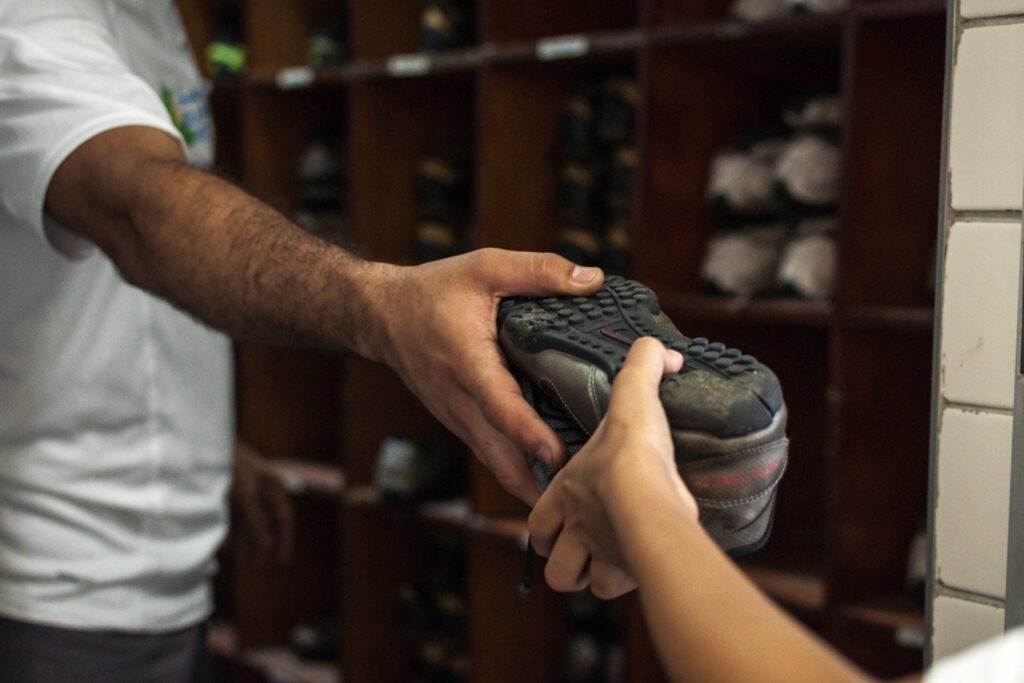
© Antoine Tardy / Photographers for Hope
3. Social and Community Development
Football fosters social cohesion, especially in regions recovering from conflict. In Sierra Leone, football programs have helped reintegrate child soldiers, while in other post-conflict areas, the sport serves as a platform for peacebuilding.
Infrastructure investments—such as building pitches or community centers—leave a lasting legacy, benefiting entire neighborhoods. Programs that employ and empower local talent ensure sustainability and prevent collapse when external funding diminishes.
4. Health and Well-Being
The health benefits of football extend beyond physical fitness. In Zambia, football programs have been used to combat HIV/AIDS by spreading awareness and encouraging testing. The mental health benefits are equally significant, particularly in trauma-affected areas, where football provides a sense of normalcy and hope.
Wherever football improves health, it indirectly alleviates poverty by reducing public healthcare burdens, freeing resources for other pressing needs. In fact in the UK, numerous research is being done in relation to the new UK Football Governance Bill to examine how to measure the real social value of a football club- what does it cover that the state no longer has to?
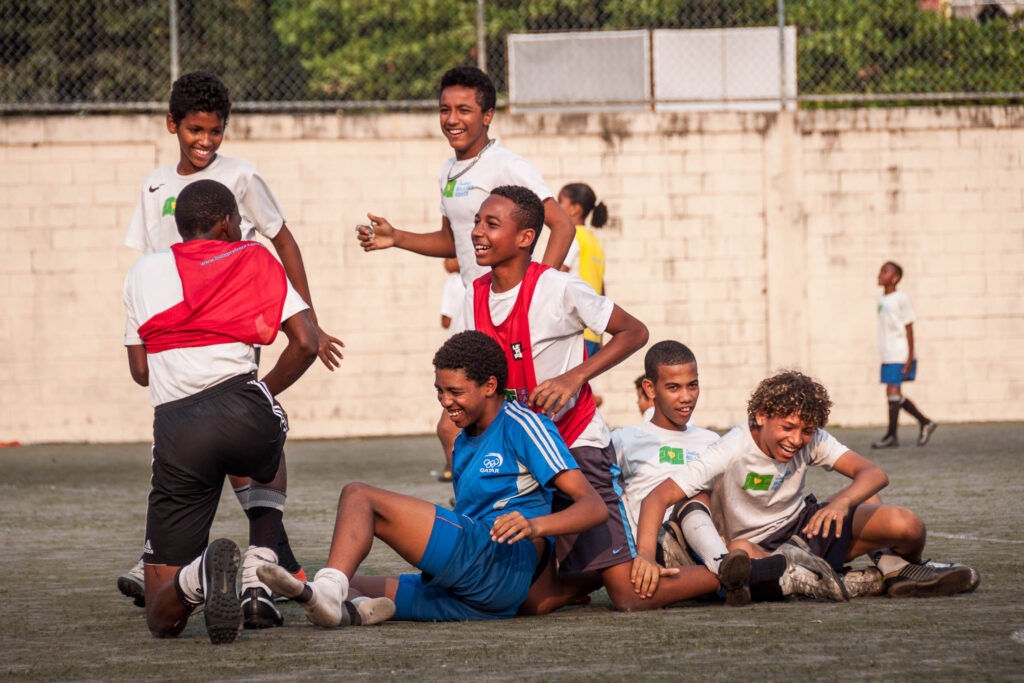
5. Pathways to Professional Opportunities
While not every grassroots player becomes the next Sadio Mané or Marta, the dream of professional football can still be transformative. Even for those who don’t reach elite levels, exposure to networks, mentorship, and life-changing opportunities can alter life trajectories. Let us not forget that many of the skills one learns on the pitch can translate directly into the job market. While this wasn’t widely recognized 10 or 20 years ago- the idea of dual careers is one that is now established and recognized.
Challenges in Translating Promise into Practice
Despite its potential, using football to alleviate poverty is not without challenges:
- Sustainability: Many programs rely heavily on external funding, making them vulnerable to collapse.
- Access: Rural and remote areas often lack infrastructure or resources for meaningful football programs.
- Short-Term Focus: Initiatives sometimes prioritize immediate outcomes over building long-term systems.
- Limited Data: Without robust metrics, it’s difficult to quantify the impact of football on poverty alleviation.
The Way Forward: Bridging the Gap
To unlock football’s full potential as a poverty alleviation tool, we must:
- Integrate Football with Development Goals: Align football programs with education, health, and employment initiatives.
- Prioritize Local Ownership: Employ local staff and address community-specific needs to ensure sustainability.
- Measure Impact: Develop metrics to track outcomes and refine strategies.
- Foster Partnerships: Collaborate with NGOs, governments, and private sponsors for resources and scalability. We need to build local eco-systems!
Conclusion: Moving Beyond the Narrative
Football is not a panacea, but it is a powerful catalyst. Its true potential lies in the hands of those who use it wisely—building not just players, but communities. The challenge is not in convincing the world that football can alleviate poverty; it’s in providing clear, actionable examples of how it contributes to that goal.
By bridging the gap between narrative and practice, football can become more than a game—it can be a wonderful teammate in giving people a brighter life.

© Antoine Tardy / Photographers for Hope


